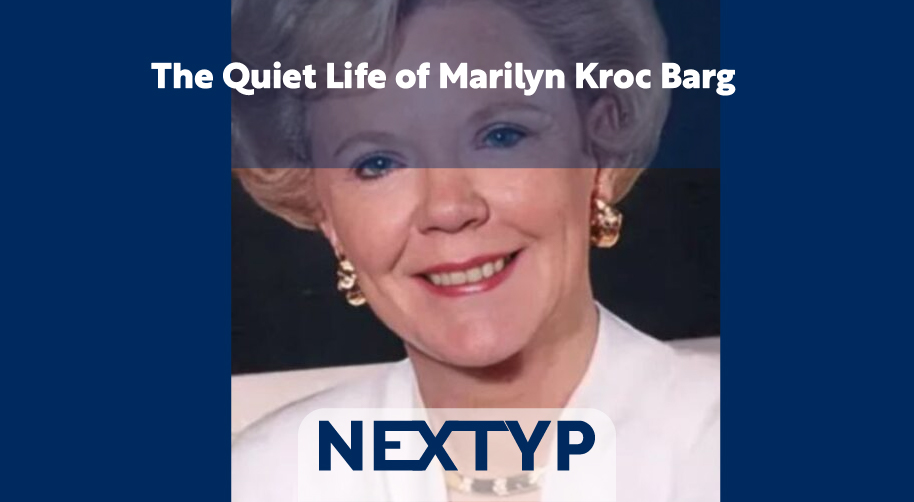Introduction
When you hear the name Marilyn Kroc Barg, you probly think of her famous father, Ray Kroc, the man who turned McDonald’s into a global empire. But honestly, her story goes way beyond that. She wasn’t just “the McDonald’s daughter.” Marilyn lived a short but meaningful life, full of compassion, charity, and personal struggle that made her who she was.
Why does the story of marilyn kroc barg even matter today? Because it’s a reminder that behind every massive brand, there are real people—people who hurt, love, give, and quietly shape the world in their own way.
Who Was Marilyn Kroc Barg?
Early Life and Family Background
Marilyn Janet “Lynn” Kroc Barg was born on October 15, 1924, in Chicago, Illinois. She was the only child of Ray Kroc and Ethel Janet Fleming, before Ray became one of the biggest names in business history.
Growing up, she saw her dad hustle through many jobs—from selling paper cups to milkshake machines—before he bought the McDonald’s franchise from the McDonald brothers. According to Wikipedia’s official page on Ray Kroc, the business exploded in the 1960s, changing fast-food forever.
Marilyn’s early life was marked by this growing success. She had access to everything she could want, but she didn’t just live off the name. People who knew her said she had a soft heart, kind of shy, and loved to help others without needing credit.
Personal Life & Marriages
In 1949, Marilyn married Sylvester Nordly Nelson, but the marriage didn’t last. A few years later she remarried—this time to Walter James Barg in 1960—and that’s when she became widely known as Marilyn Kroc Barg.
Unlike her father, she stayed mostly private, avoiding big public appearances or interviews. There isn’t alot of official info about her daily life, but sources mention she was drawn to charity work and family support more than the business spotlight.
The Health Struggles That Shaped Her
Marilyn battled with diabetes for most of her adult life. Sadly, she passed away on September 11, 1973, at just 48 years old, in Arlington Heights, Illinois. Losing her at such a young age was tragic—not just for her family, but for the community projects she cared about.
Her struggle with illness gave her deep empathy. Friends said she would often support causes that helped sick kids and families, which makes sense since her father’s later philanthropy also focused on health and children’s care.
Connection to McDonald’s and Charity Work
A Quiet Force Behind the Golden Arches
While Marilyn didn’t directly run McDonald’s, her presence and influence were still felt. Living through the massive expansion of the company, she understood the impact it had on people—the workers, the customers, and families.
Some reports say she helped encourage early community initiatives that eventually inspired the creation of Ronald McDonald House Charities (RMHC), an organization that offers free housing to families with hospitalized children. Even though her name isn’t front and center, her compassion is still part of that legacy.
More Than Just a Name
Marilyn never chased fame or attention, and maybe that’s what makes her story kinda beautiful. She showed that a meaningful life doesn’t always need to be public or loud—it can be quiet, generous, and full of care for others.
Lessons From Her Life
Privilege Means Opportunity—Not Just Comfort
Being born into money doesn’t mean you can’t use it for good. Marilyn’s life reminds us that wealth is a tool—you can use it to make life easier for yourself or to lift others.
Your Struggles Can Shape Your Purpose
Dealing with diabetes made her more compassionate. She knew what suffering felt like, and that shaped how she gave back.
Women’s Stories Deserve More Space
Back then, women in business families often stayed unseen. But their presence mattered. Marilyn’s life gives voice to all those women who supported major success stories quietly, behind the scenes.
Pros and Cons of Her Legacy
Pros
- Positive Influence on Charity – Her compassion and spirit inspired philanthropic work that still helps families today.
- Symbol of Empathy – She showed that fame and kindness can exist together.
- Representation for Women – Her story fills an important gap in the McDonald’s legacy narrative.
Cons
- Few Public Records – There’s limited documentation of her contributions, so much of her story relies on second-hand accounts.
- Overshadowed by Her Father – Ray Kroc’s success made it easy for her achievements to be overlooked.
- Short Life Span – Dying young meant she didn’t get to expand her charitable impact further.
FAQs About Marilyn Kroc Barg
Who was Marilyn Kroc Barg?
She was the only daughter of McDonald’s founder Ray Kroc and his first wife, Ethel Fleming.
Did she work for McDonald’s?
There’s no evidence she worked directly in the company, but she was part of its family history and influenced its charitable side.
What caused her death?
She passed away due to diabetes complications in 1973.
Did she have children?
Public records don’t show any children from either of her marriages.
What can we learn from her life?
That kindness doesn’t need cameras, and success means little if you can’t use it to help someone else.
Key Takeaways
- Legacy isn’t just money—it’s meaning.
- Act while you can, cause life can end quicker than we expect.
- Celebrate hidden stories, especially those of women who built quiet strength behind big names.
Conclusion
At the end of the day, Marilyn Kroc Barg might not be in business textbooks, but her life carries an important message. She reminds us that you don’t have to be loud or famous to make a difference.
She was compassionate, humble, and real. Her story shows that even if you’re born into a powerful family, it’s what you do with your life that truly matters.
So next time you see those golden arches, maybe remember the woman who lived in their shadow—but shined anyway.
Because honestly, its not about how big your name is. It’s about the kind of heart you leave behind.


